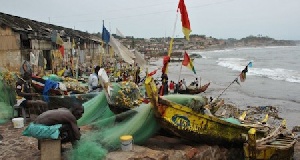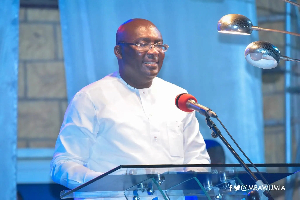Fishermen in the Western Region have called for a comprehensive and separate Fisheries Impact Assessment in addition to the Environmental Impact Assessment (EIA) for effective monitoring and evaluation in the oil and gas industry.
According to Section 93, Fisheries Act, Act 625, 2002 Section (l) “A person or government department or any other agency planning to conduct any activity other than fishing, which is likely to have substantial impact on fisheries resources or other aquatic resources of Ghana, shall inform the Commission of the plans prior to commencement of the planned activity with a view to conserving and protecting the fisheries resources”.
Also, Section(2) of the same Act says “The Commission may make or require reports and recommendations by those conducting the planned activity regarding likely impact of the activity on the fishery resources or other aquatic resources of Ghana and possible means of preventing or minimising the adverse impacts, which shall be taken into account by the person, government department or other agency in the planning of the activity and in the development of means of preventing or minimising any adverse impacts”.
And Section (3) says “The requirement under this section shall be in addition to any other requirement of the Environmental Protection Agency”.
Nana Kojo Conduah, President of the Ghana Canoe Fishermen Council, Western Region, explained that the EIA takes a summary of the Fisheries Impact Assessment -- the Fisheries Impact Assessment will provide adequate information that will impact positively in the oil and gas sector.
These were made known at the Ghana Monitoring and Evaluation forum held in Takoradi for fishermen, fishmongers, chiefs, queen mothers, non-governmental organisations, small and medium enterprises as well as community based organisation among others in Takoradi.
The forum was on the theme “Promoting effective monitoring and evaluation systems in the oil and gas sector: providing evidence for informed decision-making”.
He noted that more fish have moved close to the offshore oil platforms, and this has resulted in the decline of fish stock.
He said the fishermen depend on the fish for their livelihoods -- it serves as income, reduces poverty as well as serving as foreign exchange earnings; and fish is a protein requirement for growth/sustenance of the human body.
“Players in the oil and gas sector should put in place mechanisms for fishermen in case there is oil spillage -- there should be compensation that will sustain the fishermen if there is spillage and their livelihoods are affected,” he added.
Again, he advised government and stakeholders in the industry to ensure that the livelihood of fishermen is not put into jeopardy.
Madam Rita Yawson, a fishmonger, called on stakeholders in the industry to always involve fishermen and fishmongers in any decision that will affect the fishing industry.
Kwadwo Kyei Yamoah, the Programmes Manager of Friends of the Nation(a non-governmental organisation) in a presentation on “an overview of key indicators for the development comprehensive fisheries impact assessment”said the maritime domain of Ghana is an important natural resource for the country.
He noted that washing chemicals from the holds of ships into the sea, oil leakage from ships that ply our seas, as well as oil-exploitation activities pose serious threats to the marine environment.
“For the sake of economic well-being and for the livelihood of fisher-folks and other persons who live along the coast, and to tourism -- there is need for Ghana to do all it can to safeguard its marine environment from the various sources of pollution,” he added.
Click to view details



Business News of Saturday, 22 November 2014
Source: B&FT

















